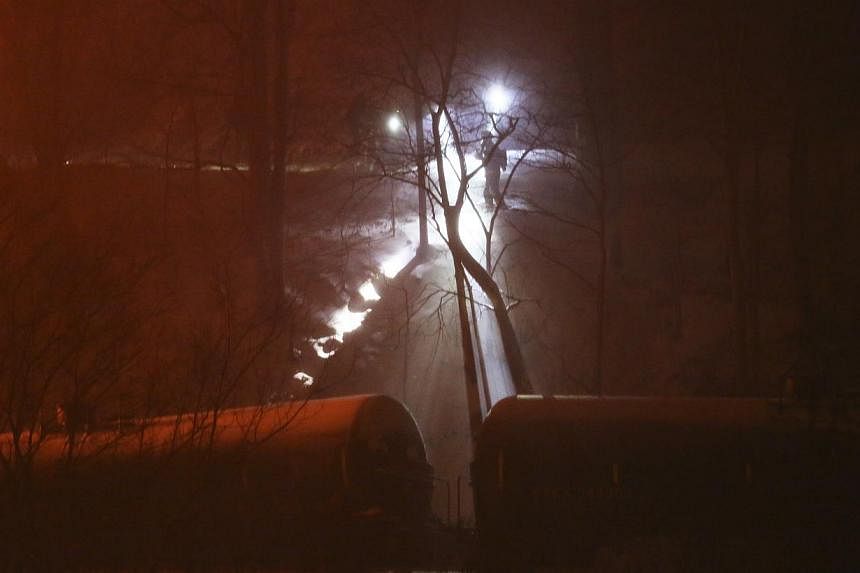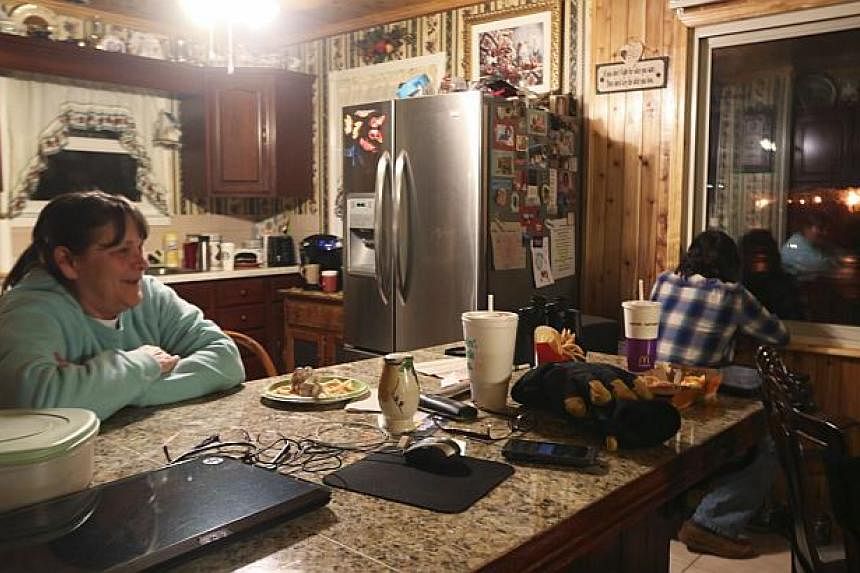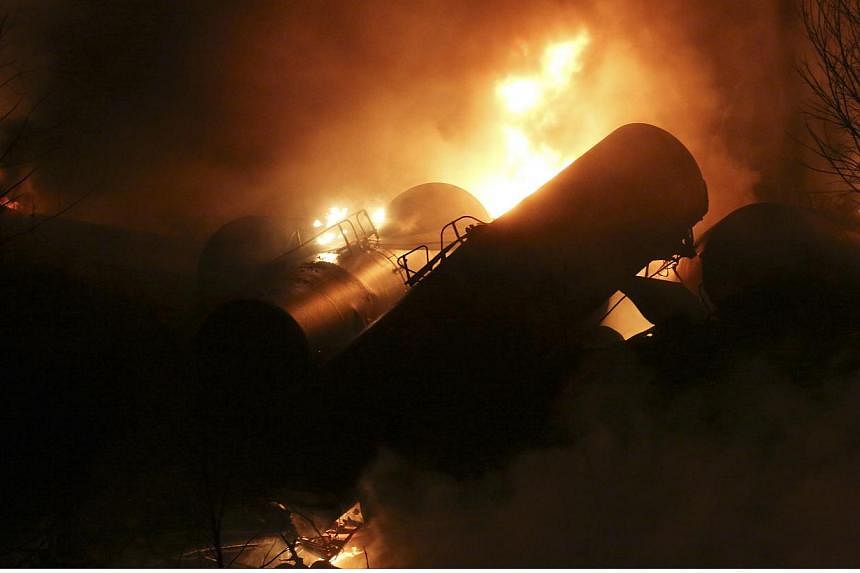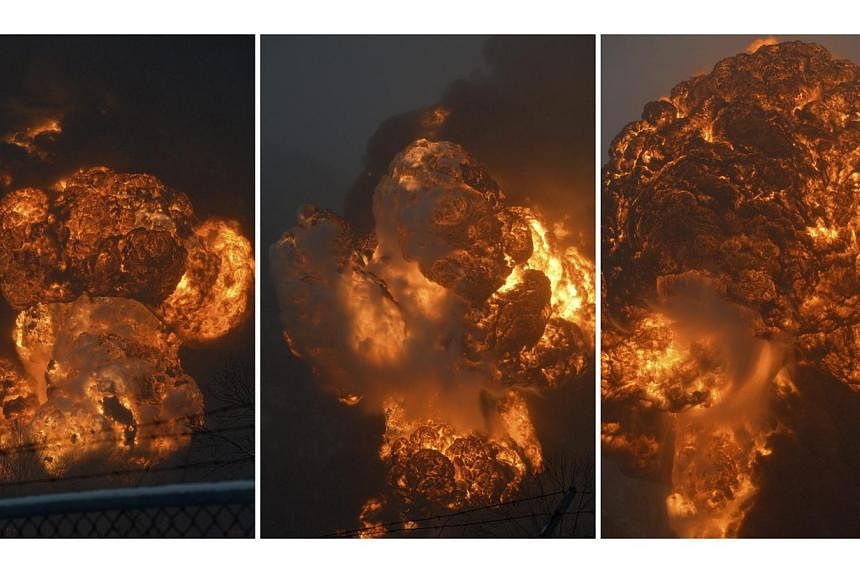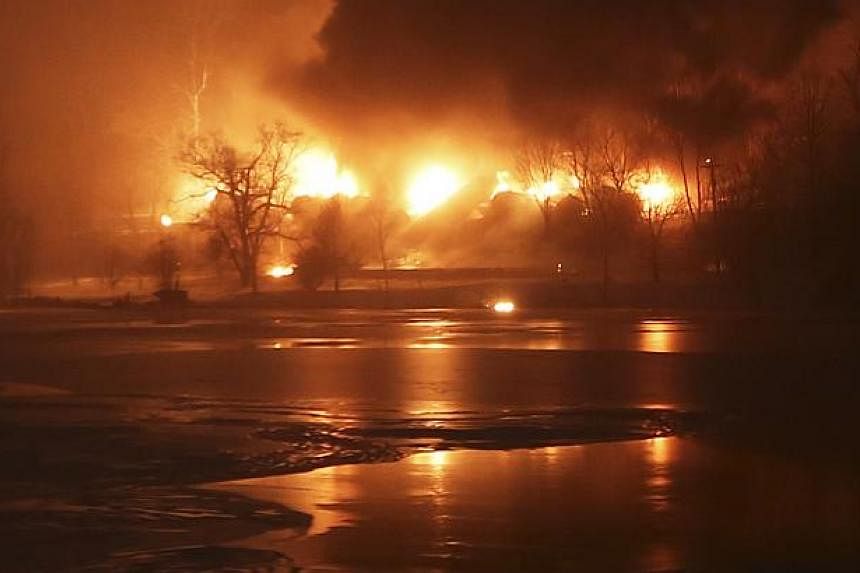NEW YORK (Bloomberg) - An oil train with 109 cars derailed near a West Virginia town Monday, causing as many as 15 tankers to catch fire and a state of emergency to be declared in two counties.
Governor Earl Ray Tomblin issued the emergency for Kanawha and Fayette counties as CSX Corp., the train's operator, worked with emergency responders at the scene in frigid conditions.
One person was being treated for potential smoke inhalation after the derailment, while no other injuries were reported, according to the Jacksonville, Florida-based railroad and a state official.
By midnight Tuesday local time, 85 people had taken shelter at two locations after fire broke out on up to 15 of the 27 derailed cars, said Lawrence Messina, a spokesman for the West Virginia Department of Military Affairs and Public Safety. Local emergency responders had initially put the number of evacuated residents at 1,000, he said.
"Unfortunately the severity of the fire is such that it's been difficult to assess the situation in sufficient detail," said Messina. "We still do believe that there is oil in the water from at least one leaking tanker."
The Obama administration is revising safety standards after a series of train derailments involving oil, including a July 2013 accident in Quebec that killed 47 people as well as several non-fatal explosions in states including North Dakota.
"Fire is still burning and will be allowed to burn out," the company said in an emailed statement. "We are still assessing number of rail cars in the water and number leaking."
The derailment occurred at about 1:18 pm local time Monday, according to Theresa White, director of the Fayette County Office of Emergency Services. The two-locomotive train was traveling to Yorktown, Virginia, from North Dakota when it jumped the tracks near the town of Mount Carbon in Fayette County.
"The US Coast Guard is on the scene with booms to try to control the crude oil," White said by phone.
CSX is working with first responders, including the Red Cross, to facilitate "precautionary" evacuations. Operations were suspended at the Cedar Grove and Montgomery water-treatment plants as an additional measure, the company said.
CSX teams also are working "to address the fire, to determine how many rail cars derailed, and to deploy environmental protective measures and monitoring on land, air and in the nearby Kanawha River," the eastern US's largest railroad said.
"Initial assessment indicates some oil in a creek along our tracks that flows into the river, and efforts are being made to contain it," the company said.
CANADIAN RAILROAD
The West Virginia derailment followed a similar accident late Saturday in Canada, when a Canadian National Railway Co. train carrying oil derailed near Gogama, Ontario.
On its website Canada's biggest railroad said repairs were being made on the Ruel subdivision of its main line and that shipments between Montreal and Winnipeg, Manitoba, "may continue to experience delays for an additional 24 hours."
Rail shipments of oil in the US rose to 408,000 car loads last year from 11,000 in 2009, as a surge of output from fields not connected to pipelines cause producers and refiners to turn to trains.
Canadian exports of crude by rail rose to about 163,000 barrels a day in the second quarter of 2014, about 10 times the volume in the same period of 2012, according to data from the country's National Energy Board.
NEW RULES
The latest derailments follow a series of incidents that have caused US and Canadian regulators to scrutinise rail industry practices and propose new rules.
The new US standards for trains carrying crude would first require companies to upgrade tank cars known as DOT-111s, which safety investigators have said are prone to puncture in rail accidents, a person familiar with the proposal said this month.
The draft rule also would require that new tank cars be built with steel shells that are 9/16th of an inch thick, people familiar with the plan said. The walls of the current cars, both DOT-111s and the newer CPC-1232 models, are 7/16th of an inch thick.
